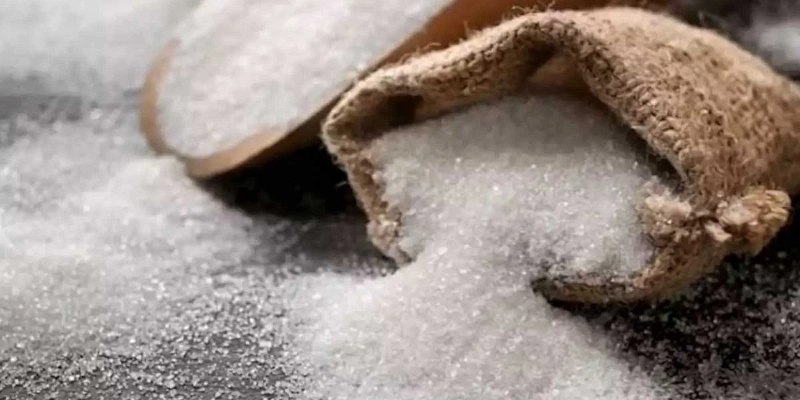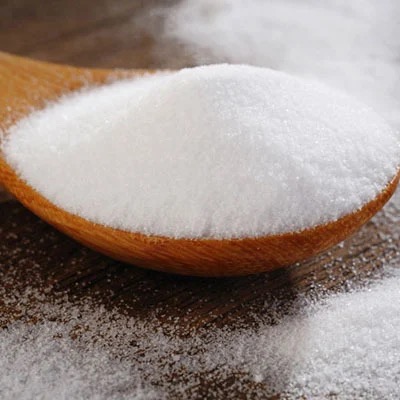







Content Menu
● Does Sucralose Cause Cavities?
>> Scientific Evidence on Sucralose and Cariogenicity
>> Sucralose Compared to Sugar and Other Sweeteners
● Acidic Effects of Sucralose-Containing Products
● Sucralose in Oral Health Products
● Practical Implications for Consumers and Manufacturers
● Broader Health Considerations
● Summary of Sucralose's Role in Oral Health
● FAQ
>> 1. Can sucralose cause cavities by itself?
>> 2. Are all sucralose-containing products safe for teeth?
>> 3. Does sucralose affect plaque pH?
>> 4. Can acidic diet sodas with sucralose harm teeth?
>> 5. Is sucralose better than sugar for dental health?
Sucralose, a popular artificial sweetener, has gained widespread use as a sugar substitute in food, beverages, and healthcare products due to its intense sweetness and zero-calorie profile. As a Chinese manufacturer specializing in natural sweeteners, functional polyols, and dietary fibers, it is crucial to understand the dental implications of sucralose to better serve global clients seeking healthier alternatives. This article comprehensively examines whether sucralose can cause cavities, its effects on oral health, and how it compares to traditional sugars and other sweeteners.

Sucralose is a chlorinated derivative of sucrose (table sugar) that is approximately 600 times sweeter than sugar but contains no calories. It is chemically modified to resist digestion and metabolism, making it a non-nutritive sweetener. Sucralose is heat-stable and acid-stable, which allows it to be used in a wide variety of products, including soft drinks, baked goods, chewing gum, and pharmaceuticals. Regulatory bodies such as the U.S. Food and Drug Administration (FDA) and the European Food Safety Authority (EFSA) have approved sucralose as safe for human consumption.
Dental cavities, or caries, develop when acids produced by oral bacteria demineralize the tooth enamel. These acids result from the fermentation of fermentable carbohydrates, primarily sucrose and other sugars, by bacteria such as *Streptococcus mutans*. The acid lowers the pH in dental plaque, leading to enamel erosion and cavity formation. Additionally, sucrose uniquely facilitates the synthesis of extracellular polysaccharides by bacteria, which increases plaque bulk and adherence to teeth, further promoting decay.
A series of scientific studies have consistently demonstrated that sucralose is non-cariogenic. Unlike sucrose, sucralose is not metabolized by oral bacteria into acids that cause enamel demineralization. Research involving bacterial metabolism, animal models, and human plaque pH measurements confirms that sucralose does not lower plaque pH or promote acid production.
Moreover, sucralose-based sweeteners that contain bulking agents like maltodextrin or dextrose may carry some cariogenic potential due to these added fermentable carbohydrates. However, pure sucralose products, such as granular or packet sweeteners, have significantly lower cariogenic potential than sugar.
Sucrose is often referred to as the "arch-criminal" of dental caries because it uniquely enables oral bacteria to produce sticky extracellular polymers that increase plaque accumulation and acid production. This makes sucrose more cariogenic than other sugars.
In contrast, sucralose:
- Does not serve as a substrate for acid-producing bacteria.
- Does not contribute to plaque acidification.
- Does not promote the synthesis of extracellular polysaccharides.
Other sugar substitutes such as xylitol and sorbitol have also been studied extensively and show varying degrees of cariostatic effects, often reducing cariogenic bacteria levels in dental plaque. Sucralose, while not actively reducing bacteria like xylitol, is neutral and does not contribute to caries development.
While sucralose itself is non-cariogenic, many products containing sucralose are acidic due to added acids like citric acid or phosphoric acid. For example, diet sodas sweetened with sucralose often have low pH levels that can erode tooth enamel independently of the sweetener. Frequent consumption of acidic foods and beverages can lead to enamel erosion, increased tooth sensitivity, and a higher risk of cavities.
Therefore, even though sucralose does not cause cavities, the overall formulation of the product and its acidity must be considered when evaluating oral health risks.
Sucralose is commonly used in oral health products such as sugar-free chewing gum and toothpaste. These products benefit from sucralose's sweetness without the cariogenic effects of sugar. Chewing gum containing sucralose can stimulate saliva flow, which helps neutralize acids and remineralize enamel, further protecting against cavities.
- Consumers aiming to reduce sugar intake and cavity risk can safely use sucralose-sweetened products, especially those without added fermentable carbohydrates or excessive acidity.
- Manufacturers have the opportunity to develop healthier food, beverage, and healthcare products by incorporating sucralose alongside natural fibers and functional polyols to reduce sugar content while maintaining desirable taste and texture.
- Dental Health Professionals can recommend sucralose as a non-cariogenic sweetener alternative for patients concerned about dental caries, diabetes, or weight management.

Besides dental health, sucralose offers benefits for blood glucose management and calorie reduction, making it suitable for diabetics and individuals managing weight. EFSA has validated that sucralose has minimal impact on blood glucose levels.
However, as with any sweetener, moderation is key. Excessive consumption of artificially sweetened products, especially acidic beverages, can still pose risks to dental and overall health.
| Feature | Sucralose | Sucrose (Sugar) |
|---|---|---|
| Sweetness Intensity | ~600 times sweeter | Baseline (1x) |
| Caloric Content | Zero | 4 kcal/g |
| Fermentable by Oral Bacteria | No | Yes |
| Acid Production in Plaque | None | Significant |
| Plaque Adhesion | No effect | Increases due to extracellular polymers |
| Cariogenic Potential | Negligible | High |
| Stability in Heat/Acid | High | Moderate |
Sucralose is a non-cariogenic artificial sweetener that does not cause cavities because it is not metabolized by oral bacteria into acids that erode tooth enamel. While some sucralose-based sweeteners contain fermentable bulking agents that may increase cavity risk, pure sucralose products are significantly safer than sugar in terms of dental health. However, many sucralose-containing products are acidic, which can harm teeth independently of the sweetener. Sucralose is a valuable tool in reducing sugar intake and managing dental caries risk, especially when combined with good oral hygiene and reduced consumption of acidic foods and beverages.

No, sucralose is non-cariogenic and does not cause cavities because oral bacteria cannot ferment it into acids.
Pure sucralose products are safe, but some sucralose-based sweeteners include fermentable carbohydrates that may increase cavity risk.
Sucralose does not lower plaque pH or promote acid production, unlike sugar which causes acidification leading to cavities.
Yes, the acidity of such beverages can erode enamel and increase sensitivity, regardless of the sweetener used.
Yes, sucralose is much less likely to cause tooth decay compared to sugar and is recommended as a sugar substitute for dental health.
Top Nutritional Supplement Manufacturers And Suppliers in Indonesia
Top Nutritional Supplement Manufacturers And Suppliers in India
Top Nutritional Supplement Manufacturers And Suppliers in Germany
Top Nutritional Supplement Manufacturers And Suppliers in France
Top Nutritional Supplement Manufacturers And Suppliers in Canada
